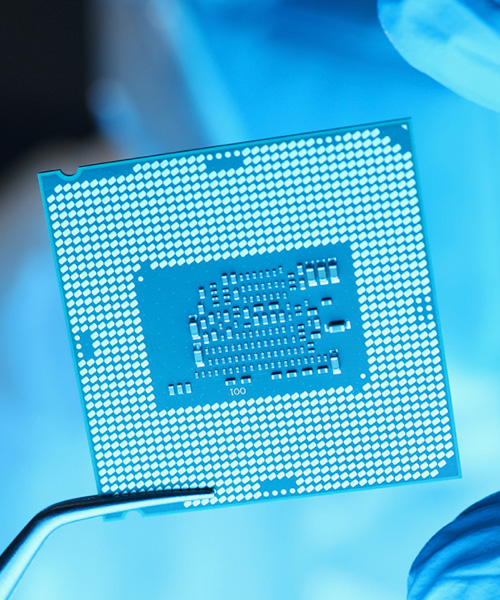
Disruptive technologies
Breakthroughs that change our lives
All about nanotechnology
Invisible potential on an atomic scale
Nanotechnology is an exciting field that makes it possible to manipulate matter at incredibly small levels: on the scale of atoms and molecules.
Innovation is always looking for unexplored paths and nanotechnology is a clear example of this. Imagine having the ability to build structures at the atomic level, design materials with extraordinary properties, and create tiny devices capable of performing amazing tasks. That is precisely what this discipline offers.
Although it sounds a bit like science fiction, the truth is that this technology of materials and structures is a tangible reality that is transforming industries and revolutionizing the way we interact with the world. As we explore the limits of the infinitesimal, discoveries and breakthroughs that could change the course of history are growing.



What is nanotechnology?
Nanotechnology is the study, design, creation, synthesis, manipulation, and application of materials, devices, and functional systems through the control of matter at the nanoscale, that is, at the level of atoms and molecules. In essence, it involves working with tiny structures that have dimensions between 1 and 100 nanometers. A nanometer is one billionth of a meter.
To put it in perspective, it would be about a thousand times smaller than the thickness of a human hair. At this scale, the properties of materials can change dramatically due to quantum effects and extended surfaces. Nanotechnology makes it possible to explore and harness the unique qualities that arise at this tiny scale through understanding and controlling these phenomena.
Nanotechnology applications
The potential and applications of nanotechnology are constantly evolving, although some revealing examples can be found in sectors such as medicine, energy, electronics, and the environment.
Nanotechnology has revolutionized the electronics industry by enabling the manufacture of nano-scale components, such as field-effect transistors (FET), flash memories, and integrated circuits. These smaller, more efficient components enable more powerful, faster, and energy-efficient electronic devices.
In the field of medicine, nanotechnology offers significant advances, from more precise and efficient drug delivery systems to advanced medical diagnostics. For example, nanoparticles designed to deliver targeted drugs to specific areas of the body can reduce side effects and increase treatment efficacy. In addition, nanosensors can detect disease biomarkers at early stages, facilitating early and accurate diagnosis.
There are many energy-related applications of nanotechnology. Some of the most popular include more efficient solar cells, higher capacity batteries, and materials for energy capture and storage, as well as graphene nanoparticles used in supercapacitors.
Nanotechnology has led to the development of a wide range of new materials with improved properties and innovative applications. For example, nanomaterials such as graphene, carbon nanotubes, and metallic nanocrystals have exceptional strength, electrical, and thermal conductivity, making them ideal for applications in construction, electronics, aerospace, and other fields.
The field of environmental challenges has also gained a great ally in nanotechnology, which, among other things, has practical applications in water purification, pollutant removal, and air and water quality monitoring. For example, nanomaterials such as nanofilters and iron oxide nanoparticles are used to remove chemical and biological contaminants from water, while nanosensors can detect and monitor contaminants in air and water at very low levels.
Join our team!
Launch your career in big data and help us to create the future of energy.
Types of nanotechnology
Based on the way they proceed and the nature of the environment in which they work, there are four main types of nanotechnology:
Repsol and nanotechnology
Nanotechnology is a key strategic tool that is transforming our society thanks to its ability to offer innovative and revolutionary solutions to existing challenges, as well as its potential to open new frontiers in areas such as medicine, energy, electronics, or the environment.
Along with others such as artificial intelligence, biotechnology, and quantum computing, nanotechnology is driving scientific and technological progress, creating new professional opportunities as well as more efficient, sustainable, and advanced products and services that will have a significant impact on society and the economy.